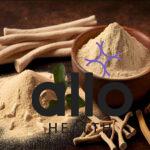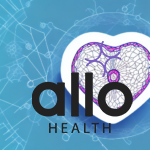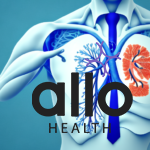Methylcobalamin: Benefits of Vitamin B12

Allo Health is dedicated to personalized well-being, offering support and trusted information tailored to individual health goals. The platform emphasizes human-generated content, led by a distinguished medical team of experts, including physicians and sexual health specialists. Their commitment to credibility involves rigorous fact-checking, authoritative research, and continuous updates to ensure accurate, up-to-date information. Allo Health's unique approach goes beyond conventional platforms, providing expert-led insights and a continuous commitment to excellence, with user feedback playing a crucial role in shaping the platform's authoritative voice.

Dr Likhith earned a MBBS degree from Kharkiv National Medical University (Ukr, Eu) in 2019. He has hands-on experience in working within the healthcare domain & super specialty hospitals post completing his internship at St. Philomena's hospital, Bengaluru. His experience as a consultant physician in an Urban primary health centre led to his active involvement in various SORC camps under NUHM. He believes that sex education is one of the best investments society can make to promote sexual health with a positive attitude.
Why This Was Upated?
Our experts continually monitor the health and wellness space, and we update our articles when new information became available.
Updated on 18 December, 2023
- Article was updated as part of our commitment to diversity, equity, and inclusion.

"The following blog article provides general information and insights on various topics. However, it is important to note that the information presented is not intended as professional advice in any specific field or area. The content of this blog is for general educational and informational purposes only.
Book consultation
The content should not be interpreted as endorsement, recommendation, or guarantee of any product, service, or information mentioned. Readers are solely responsible for the decisions and actions they take based on the information provided in this blog. It is essential to exercise individual judgment, critical thinking, and personal responsibility when applying or implementing any information or suggestions discussed in the blog."
The human body requires micronutrients and macronutrients in the daily diet to function optimally. While the major macronutrients include carbohydrates, proteins, and fats, the micronutrients include vitamins and minerals. Vitamin B12 is one the key vitamin of them. Well, Vitamin B12 mainly has two active forms- cyanocobalamin and methylcobalamin. This article is a deep insight into the latter.
What is Methyl cobalamin?
Methyl cobalamin is a type of vitamin B12 that is crucial for the proper functioning of the nervous system and the formation of red blood cells. It is one of the two active forms of Vitamin B12 and is used more effectively by the body as compared to other forms. So, scientifically, Methyl cobalamin is basically a coenzyme that is involved in many biochemical reactions in the human body and is responsible for the synthesis of DNA, RNA, and neurotransmitters.
Also, methyl cobalamin is a water-soluble vitamin which means it cannot be stored in the body that is why you need to take it regularly from your diet or as a supplement.
Benefits of Methyl cobalamin
Methyl cobalamin is a useful form of vitamin that is crucial for many health functions in the body. It helps replenish the vitamin B12 levels in your body, maintain brain health and DNA synthesis. Major roles and benefits of Methyl cobalamin in the human body involve:
-
Maintain nerve function
Methyl cobalamin is crucial for maintaining the health of the nervous system. It produces myelin sheath, a protective covering for all the nerve fibres and helps in the passage or transmission of nerve impulses. Low levels of methyl cobalamin in the body can lead to nerve damage and neurological health problems like poor memory, low focus, dementia, peripheral neuropathy, and even Alzheimer’s disease.
-
Production of red blood cells
Methyl cobalamin plays a vital role in blood cell production. It is required for the synthesis of heme, a component of hemoglobin that carries oxygen in the blood that helps increase energy levels and stamina in the body. A deficiency of methyl cobalamin can lead to anemia, which is characterized by fatigue, weakness, and shortness of breath.
-
Improves cardiovascular function
Methyl cobalamin converts homocysteine into methionine ( an essential amino acid required for the synthesis of protein). Increased levels of homocysteine increase the risk of cardiovascular disease, strokes, and impaired blood flow. Methyl cobalamin helps to control and lower the levels of homocysteine and reduces cardiovascular risk conditions.
-
Boost Immunity and Stamina
Vitamin B12 is essential for converting carbohydrates into glucose, which is used as energy by the body. Methyl cobalamin supplementation can help reduce fatigue and increase energy levels.
-
Supports eye health:
Methyl cobalamin may help to prevent age-related macular degeneration, a common eye disease that can lead to vision loss. It is also effective in relieving dry eye symptoms, according to studies.
Food Sources of Methylcobalamin
Methyl cobalamin is primarily found in animal products including –
- Fish (salmon, tuna, and sardines)
- Meat (beef, pork, and chicken)
- Dairy products (milk, cheese, and yogurt)
- Eggs
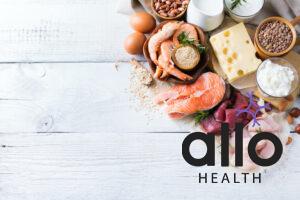
However, plant-based foods are not very prominent in this vitamin. There are very few plant sources like fortified cereals, nutritional yeast, tofu, yogurt, etc. That is why vegetarians and vegans in particular may find it difficult to get adequate methyl cobalamin in their daily diet- one of the key reasons why they resort to Vitamin B12 supplementation.
Recommended Daily Intake of Methyl cobalamin
The recommended daily intake of vitamin B12 varies based on age, sex, and life stage. Here are the general guidelines for daily RDA (Recommended Dietary Allowances) of Methyl cobalamin (Vitamin B12):
- Infants (0-6 months): 0.4 micrograms (mcg)
- Infants (7-12 months): 0.5 mcg
- Children (1-3 years): 0.9 mcg
- Children (4-8 years): 1.2 mcg
- Children (9-13 years): 1.8 mcg
- Adolescents and adults (14+ years): 2.4 mcg
- Pregnant women: 2.6 mcg
- Breastfeeding women: 2.8 mcg
Source: National Institute of Health
In case of Methyl cobalamin supplementation, make sure you follow the exact dose instructions as prescribed by your healthcare professional. Do not adjust the dosage yourself.
Potential Side Effects
Methyl cobalamin is generally safe and well-tolerated when consumed within recommended dosages. However, in rare cases, overconsumption of Methylcobalamine can lead to toxicity, which may result in a range of common side effects and allergic reactions that include:
- Skin rash
- Acne
- Itching
- Nausea and vomiting
- Difficult breathing
- Abdominal pain and cramps
- Diarrhea
- Headache and Dizziness
- Anxiety or nervousness
- Insomnia
- Heart palpitations
- Loss of appetite
Generally, Methyl cobalamin toxicity is low compared to other nutrients. With primary source as diet, the chances of any major side effects are rare but excess consumption of Vitamin B12 supplements or injections can increase the risk of toxicity and can lead to adverse effects. That is why it is always recommended to consult a healthcare professional before even starting a B12 supplement.
It is also advised to get medical advice if you have a medical history of folic acid deficiency, Leber’s disease or other forms of optic nerve damage before the consumption of methyl cobalamin.
Things To Know Before Starting a Methyl cobalamin Supplement
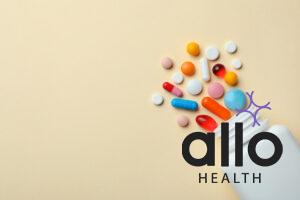
Before starting a methyl cobalamin supplement, its important to know the following things:
-
Consult with a healthcare provider
Before starting any new supplement, it’s always a good idea to talk to your healthcare provider, especially if you have any underlying medical conditions, are pregnant or breastfeeding, or are taking any medications.
-
Check for interactions
Methyl cobalamin supplements can interact with other medications like metformin or proton pump inhibitors, other dietary supplements, or certain herbal products. If you are taking any of these already, it’s important to check with your healthcare provider before starting a methyl cobalamin supplement.
-
Follow dosage instructions
It’s important to follow the recommended dosage instructions on the supplement label or as directed by your healthcare provider. Taking excessive amounts of methylcobalamin supplements can lead to toxicity, as discussed earlier.
Methyl cobalamin and Sexual Health
Methyl cobalamin directly does not play a marker in enhancing sexual health but it plays a key role in several bodily processes that can positively impact sexual health. These include-
- Improved Blood Flow: Methyl cobalamin is essential for the production of red blood cells, which carry oxygen to all parts of the body, including the genital area. This ultimately improves better sexual function both in men and women. It also helps in boosting energy levels which is an added advantage for good sexual performance.
- Reduced Risk of Erectile Dysfunction: Erectile dysfunction is a condition where men have difficulty achieving or maintaining an erection. According to a study by the National Library of Medicine, men with erectile dysfunction had lower levels of vitamin B12 in their blood compared to healthy men. Supplementing with methyl cobalamin (an active form of Vitamin B12) may help reduce the risk of erectile dysfunction.
- Improved Fertility: Methyl cobalamin is equally important for healthy sperm production and its motility in men. It also helps to regulate the menstrual cycle in women.
Takeaway
Methyl cobalamin, an active form of vitamin B12, is essential for maintaining the health of our nervous system, red blood cells, and DNA synthesis. The primary aim should be to obtain optimum levels of Methycobalamin with diet. However, further supplementation is required in case of deficiency. Make sure you consult with your healthcare professional before starting any supplementation, especially if you have existing medical conditions or take medications that may interact with methyl cobalamin.
Frequently Asked Questions
Q: Can I get enough methyl cobalamin from my diet?
A: Most individuals can obtain the required amount of methyl cobalamin through a well-balanced diet. But older people, people having underlying medical conditions, vegetarians and vegans may need supplementation to compensate for the nutritional gaps of Methyl cobalamin.
Q: Can methyl cobalamin help with weight loss?
A: While there is no direct link between methyl cobalamin and weight loss, it does play a role in maintaining healthy metabolism and energy levels. A balanced diet, regular exercise, and adequate vitamin intake can contribute to healthy weight management.
Q: Is it safe to take methyl cobalamin during pregnancy?
A: Methyl cobalamin is essential for pregnant women to support fetal development and prevent neural tube defects. Pregnant women should aim for 2.6 mcg per day, and it is advisable to consult with a healthcare professional before starting any supplementation.

